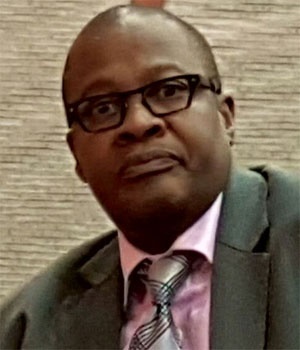
Former British Prime Minister Tony Blair recently made remarks that exposed the source of the rot in modern democratic politics: the ignorance of voters.
Discussing the implications of Brexit at a conference in London, Blair said the British people did not know the true terms of Britain’s exit from the European Union.
“Our challenge is to expose relentlessly [the cost of Brexit], to show how the decision was based on imperfect knowledge which will now become informed knowledge,” he said. The British voters needed to be educated to find a way “from the present rush over the cliff’s edge”.
The distinction between “imperfect knowledge” and “informed knowledge” among voters is important because the nature of knowledge shapes electoral outcomes. Not only is this a big issue in the context of the Brexit referendum; it’s also a problem in normal democratic elections.
When voters decide on who should govern them, it’s important that they exercise their right to vote armed with “informed knowledge”. They should have in-depth knowledge about the contesting menu of political parties, policies and candidates before they cast their vote. They should have the capacity to distinguish between false and true information.
Voters with “informed knowledge” are more likely to produce decent electoral results. Voters with “imperfect knowledge” are more likely to produce flawed and even dangerous outcomes. This is because not every party or candidate appearing on the ballot paper is good for democracy or represents the public good, despite claims to the contrary.
The weakness of democracy is that it attracts all kinds of scoundrels who fancy themselves leaders of the people. To compound matters, campaign tactics to lure voters are sophisticated.
The exercise of choice that is embedded in the democratic process is supposed to eliminate dangerous leaders and political parties and expose bad policies. Only voters with “informed knowledge” can exercise their choices rationally to ensure success of the elimination process.
The increasing sophistication of election campaigns that are not matched by equally sophisticated voter education strategies means that voters can unknowingly vote against their own interests.
Voters with “imperfect knowledge” vote for leaders who care less about the values of honesty that should foster good governance. Such self-interested leaders and political parties use democratic process of elections to gain public power which they use for self-enrichment.
“This attitude toward politics,” wrote George Soros in his book The Crisis of Global Capitalism: Open Society Endangered, “undermines the postulate on which the principle of representative democracy was built.”
Soros is right. Elections give selfish leaders legitimacy and respectability they otherwise would not have. When bad leaders, political parties and policies are approved by the voters, the very principle of democracy is tarnished.
The consequences can be dire. The same voters who helped put into power bad, corrupt or populist leaders begin to lose faith in the democratic system, resulting in cynicism and apathy. It’s almost as if the democratic project is destroying itself.
But there is no better political system. Democracy is the only system that allows voters to change their minds and express their views freely. Unfortunately, democracy, without built-in checks and balances, also allows good leaders to be transformed by the trappings of public office into monsters.
Democratically elected monsters are a threat to democracy. They regard the public good as nothing but nuisance. For voters to counter negative tendencies of leaders and political parties, they must not only have “informed knowledge”, but they must use it during elections.
This brings us to the tragedy of the appointment of Brian Molefe as a member of Parliament for the governing ANC. When the ANC campaigned to be elected into government in the 2014 general election, it told voters that rooting out corruption was one of its top priorities.
The promise to deal decisively with the cancer of corruption was repeated by its leaders in every election campaign platform. Not once did the ANC and its leaders say they would be considerate to those who have been fingered in wrongdoing.
Obviously, voters would not vote for a party that undertakes to endorse corruption in any of its manifestation. So, it is doubtful ANC voters had in mind the possibility that the face of state capture, who was not even a politician, could be parachuted into Parliament ahead of party activists, including those who campaigned for the party during the elections.
Our democratic system has serious weaknesses that disadvantage the voters. It does not give voters full information.
Technically, not one voter voted for Molefe or knew he would go to Parliament to represent voters. No one knows whether any voter would have voted for him had he campaigned on his own to be elected without the “middle man” that is the ANC.
The proportional representation system gives too much power to political parties. Voters cannot hire and fire their representatives. They can hire or fire the “middle men” political parties.
This means if a democratically elected party is hijacked by virulent forces and eject the interests it professed to represent during an election campaign, it sends a message to voters to go jump into the nearest lakes.
- Mkhabela is a fellow at the Centre for the Study of Governance Innovation (GovInn) at the University of Pretoria.
Disclaimer: News24 encourages freedom of speech and the expression of diverse views. The views of columnists published on News24 are therefore their own and do not necessarily represent the views of News24.




 Publications
Publications
 Partners
Partners























